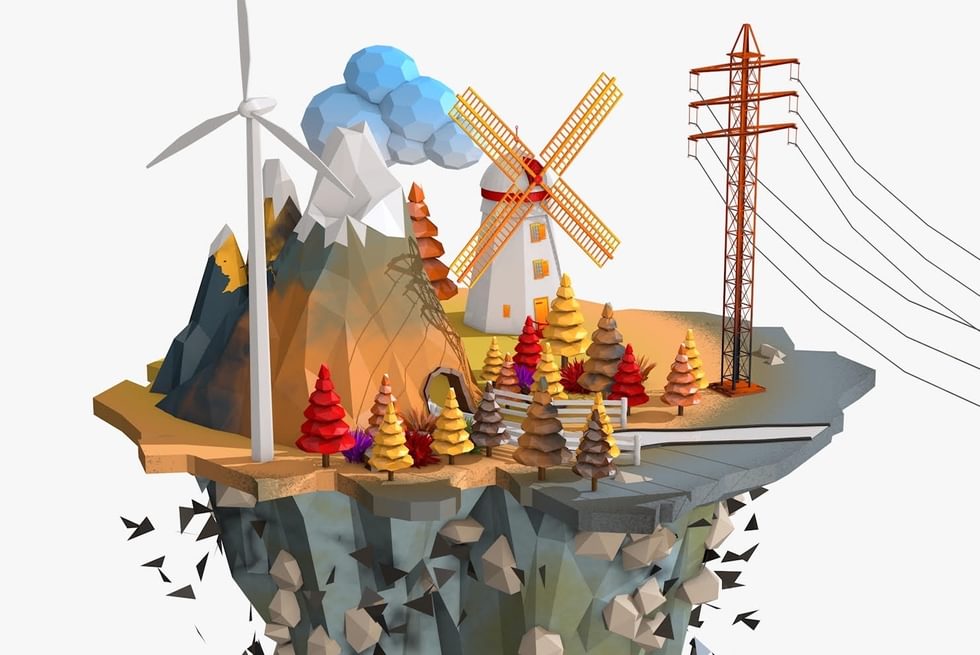Electric
From the Series: Speaking Volumes
From the Series: Speaking Volumes

In addressing urgent electricity demands, many countries in the global South are looking toward short-term power generation systems. An increasingly popular form of such provisional energy infrastructure are powerships: floating power plants that anchor at a harbor, plug into a national grid, and generate electricity with heavy fuel oil or natural gas.
Currently, the only producer of powerships is the Turkish company Karadeniz Holding; a family-owned business, it builds the ships on spec in Istanbul and leases them to places with high energy demands. Two of their ships, Fatmagül Sultan and Orhan Bey (both named after family members), have been providing 30 percent of Lebanon’s electricity since 2013, thereby demonstrating the floating generators’ potential to prospective buyers. A barge in Ghana called Ayşegül Sultan, also named for a family member, accounted for 22 percent of the country’s total energy generation between December 2015 and September 2017, and was replaced by the larger powership Osman Khan. Other projects are planned and operational in Iraq, Indonesia, Myanmar, and Zambia. Currently the company manages nine powerships around the world, but nineteen more boats are in production in the Tuzla shipyards of Istanbul. Unlike other systems of power generation, the construction of powerships is undertaken in a completely different environment than the one in which the floating plant will function. Karadeniz labels their project “The Power of Friendship,” presenting it as a campaign to bring electric power to those in need.
These floating generators may seem inventive to an outsider, but Karadeniz Holding executives do not think that they are particularly novel. One executive emphasized to me, in a Facebook message, that powerships are not high technology: “It is not rocket science.” Another top executive explained that powerships have been around since the mid-twentieth century, when the technology was taken up by the U.S. military. A good example is the USS Sturgis, which was launched in 1943 as a Navy transport ship but was repurposed in the 1960s with the installation of a nuclear reactor in its hull. Dubbed the MH-1A (short for mobile, high power, first of its kind), the floating power plant was towed to the Panama Canal Zone in 1967 and provided electricity until 1975. Karadeniz Holding emulated this idea, but rather than building boats from scratch—a model that would have been too expensive both for the company and their lessees—they retrofitted old boats to serve as platforms for power generation. The company crafted solutions by using the resources at hand, producing a bricolage.
While Karadeniz Holding executives do not see the boats themselves as being particularly original, they nevertheless believe they are providing innovative services. During a breakfast meeting at Beirut’s Phoenicia Hotel, a Karadeniz Holding executive explained to me that the energy sector operates on long-term contracts, ranging from twenty to one hundred years. Yet these contracts do not always satisfy industry needs. “Electricity operators always imagine that they can match supply and demand,” he said, “but this never happens. Wealthy countries, such as Switzerland, always overproduce, but they are able to sell the extra electricity over the grid to other countries, and make it seem as if their production levels match consumption. When the same thing happens in a poorer country, like Ghana, we see the emergence of energy hunger (enerji açlığı). In fact, it is the same thing that happens in Switzerland: a mismatch of supply and demand.” Despite all efforts, the physical properties of electricity—the fact that it cannot be stored and therefore needs to be consumed immediately after it is produced—make it difficult for market mechanisms to work well. For the executives, this is exactly where Karadeniz Holding’s work becomes important. They proffer short-term contracts, which promise to act as correctives for the market. The boats can be attached to national grids with different regulatory and legal frameworks, quickly helping to make supply equal demand.
While differences in regulatory and legal environments are important, they are not the main determinants for Karadeniz’s decision to supply electricity to a particular country. A Karadeniz employee based in Ghana told me that the most significant factor is a country’s utility frequency—the fixed frequency at which the electric current oscillates when being transmitted from a power station to the end user. For now, Karadeniz builds powerships for electrical grids that operate on 50 Hz, which means that they can provide services to about 80 percent of all countries around the world.
The powership operators can offer services globally, but they seek to construct a sense of familiarity with the countries where they work, as evidenced by their slogan “The Power of Friendship.” Named after family members, the boats not only solidify the kinship network that gave rise their production, but also are explicitly presented as visitors to lessee countries. These corporate strategies are supplemented by the ways in which the company’s employees approach their Ghanaian counterparts. A Turkish Karadeniz employee, who at the time of our conversation had been living in Accra for seven months, told me that Turkey shares many customs with Ghana, such as common marriage rituals. “Just like us, Ghanaian young men have to ask for their girlfriends’ hands by paying a visit to the family house,” he described. Shared rituals also assist in the construction of familiarity.
This emphasis on shared customs is a metonym for the possibility of shaping common developmental trajectories for Turkey and Ghana. A Ghanaian businessman explained that he enjoys working with companies like Karadeniz Holding for precisely this reason: their employees do not position their countries as better than Ghana, but rather focus on the common problems they have experienced on the path toward development. “They are not patronizing or condescending, like American or French companies,” he concluded. Given this emphasis on friendship and familiarity, Karadeniz Holding executives define themselves as “solution partners” rather than providers of temporary energy infrastructures. It is the power of friendship that seeks to ensure that supply matches demand.